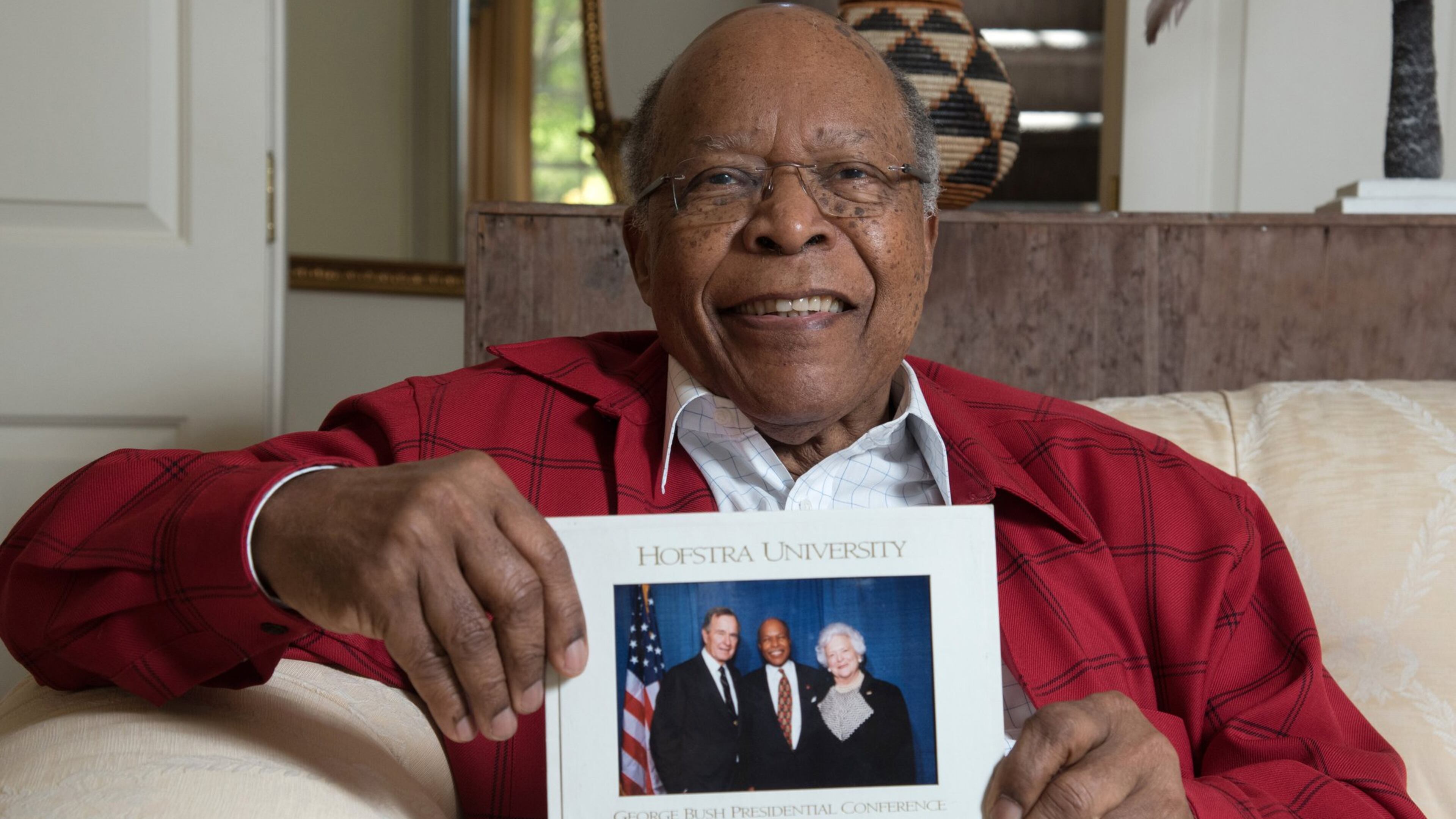OPINION: Health disparities still a problem, says former Bush HHS Secretary

In 1967, the state of Georgia issued a report about an extreme shortage of physicians in the state and the inability of Georgia’s two medical schools to fill the demand.
As a result, the health of Georgia residents was suffering, the report concluded.
That history prevails.
Georgia is one of the worst states for overall clinical care, according to the most recent America’s Heath Rankings annual report. The state ranks 49th for access to care and 48th for the number of health care providers.
Those numbers are inclusive of all Georgians, but some residents are disproportionately impacted by certain health risks. They include Blacks, Latinos and Native Americans; those with no high school education; low-income households; and residents in rural areas.
The pandemic has brought many of these disparities to the surface, but Louis Sullivan has been working to address those same differences in health outcomes for more than a half-century.
Sullivan is the former secretary of the U.S. Department of Health and Human Services who served under President George H.W. Bush from 1989 to 1993. He is also the founding dean and president emeritus of Morehouse School of Medicine. The Georgia native, who hails from Blakely, has written a book about the ongoing battle to overcome health disparities.
In “We’ll Fight it Out Here” (Johns Hopkins, $30), Sullivan spotlights the work of the Association of Minority Health Professions Schools (AMHPS), which helped raise awareness of health inequities in 1983 and led to much of the health care legislation related to minorities since that time.
When we talked by phone, Sullivan mentioned the impact of the pandemic on health disparities. “One of the things that has occurred has been the realization in our society that there are inequities in health status and health care,” he said. “Like other aspects of our society, medicine was infused with discrimination, and we are living with the residue of that even today.”
Sullivan made headlines during his nomination to serve as HHS secretary when media outlets suggested he was playing both sides of the political divide on abortion to secure the appointment. But his commitment to health equity has always been evident.
He spent an hour passionately explaining to me the impact he hoped to make from the moment he graduated from Morehouse College and attended medical school at Boston University, the only Black student in his graduating class.
Sullivan planned to return to Georgia to become a family physician, filling a much-needed demand for rural and Black Georgia residents, but he remained in the northeast for decades. He was a faculty member at Boston University when he made the decision to return to Georgia as founding dean of Morehouse School of Medicine.
AMHPS, founded in 1977, was an affiliation of all the major Black health schools (except Howard University) with the mission of addressing the poor health outcomes of minorities by increasing the number of Black health professionals. The organization was instrumental in establishing the Office of Minority Health in 1986, as well as creating the mechanisms for funding to institutions that produced practitioners for underserved populations. The group also lobbied for grants to students from low-income backgrounds.
As HHS secretary, Sullivan established what is now known as the National Center on Minority Health and Health Disparities. He also diversified the department staff.
Sullivan told me the one thing that allowed those gains to be made was the ability of legislators and cabinet officials to work together across racial, cultural and political lines.
In his book, Sullivan says that things fell apart when Newt Gingrich, who had previously supported minority affairs, became the House minority leader and imposed a loyalty oath among Republican House members. Bipartisan consultations and friendships gave way to the kind of partisanship that continues to tank government efficiency today.
Sullivan lamented the current politicization of science and the many ways in which it has proved damaging to public health. He wants us to consider how the practical processes the organization utilized in the past can provide a blueprint for addressing persistent gaps in the health of Georgia residents.
We had been talking about health disparities but as we closed our conversation, his reflections applied to other longstanding inequities.
“We can change the things that exist today for the better but we have to focus … and build allies wherever we can,” Sullivan said. “Improving our health should not be a political issue. It should be a human rights issue, an issue of equity. If we do that, we will have a better society for everyone.”
Read more on the Real Life blog (www.ajc.com/opinion/real-life-blog/) and find Nedra on Facebook (www.facebook.com/AJCRealLifeColumn) and Twitter (@nrhoneajc) or email her at nedra.rhone@ajc.com.


